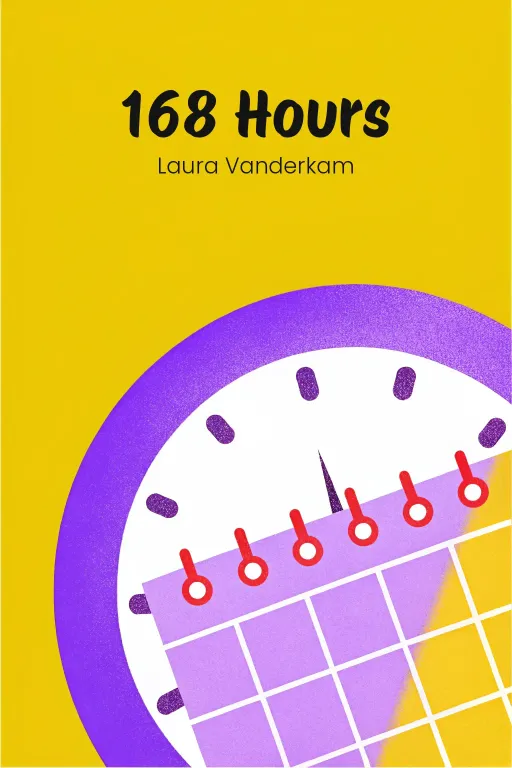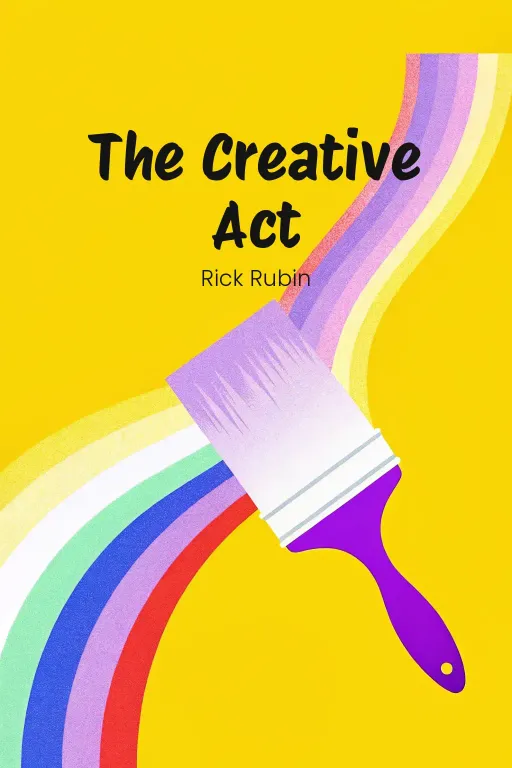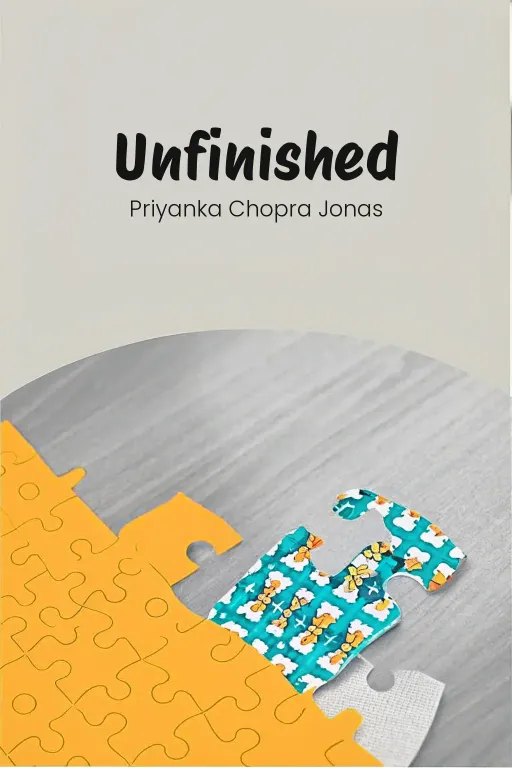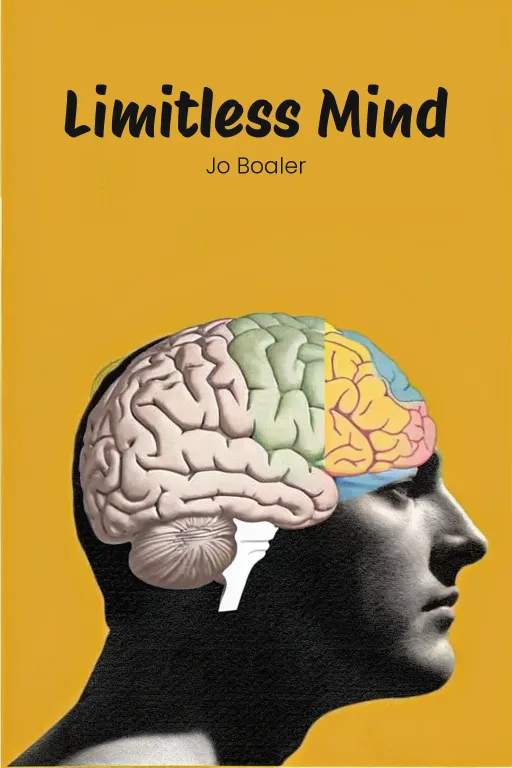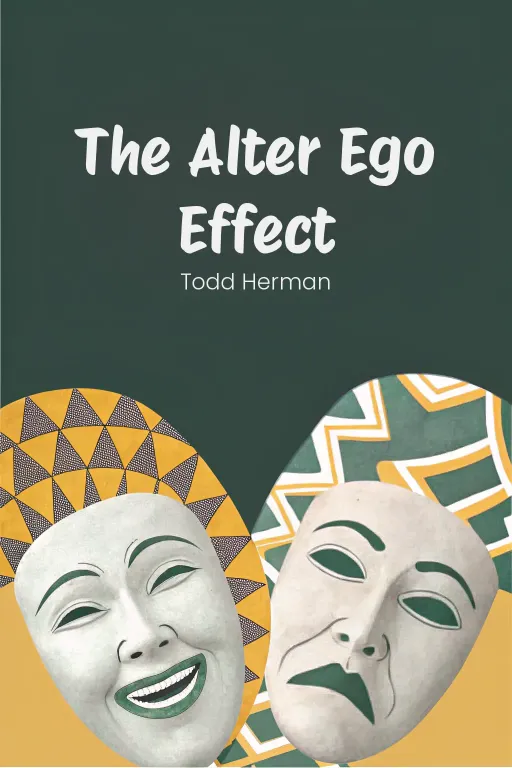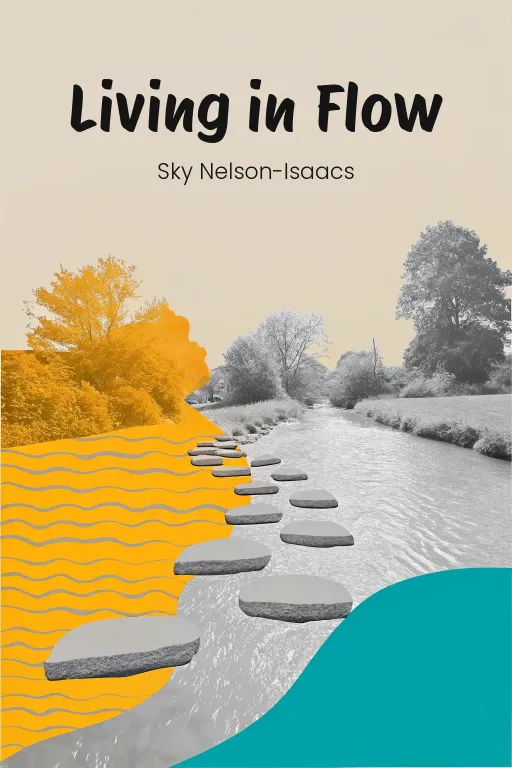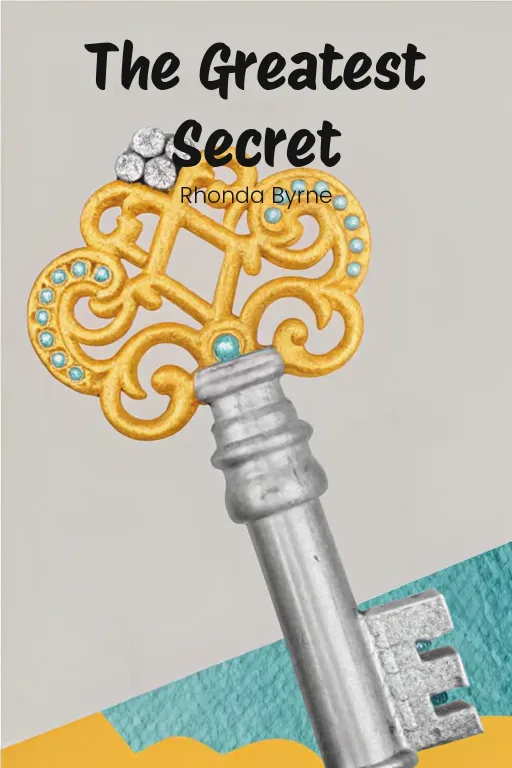
Book Therapy: Find Yourself in Stories
Podcast by Beta You with Alex and Michelle
The Delights and Dilemmas of the Reading Life
Book Therapy: Find Yourself in Stories
Part 1
Alex: Hey everyone, welcome back! Okay, so, think about this: when was the last time a book just… grabbed you? Like, it knew exactly what you needed to hear, right when you needed it? Michelle: Or even better—when did a book keep you up all night, second-guessing everything? I mean, books aren't just pretty objects, are they? They shake us up, reshape us, maybe even wreck us a little, in a good way, of course. Alex: Exactly, Michelle! And that's what we're diving into today: I'd Rather Be Reading by Anne Bogel. It's a beautiful set of essays all about the reader's life. It's funny, it's nostalgic, and it's full of those little "aha" moments where books and real life collide. She really nails what it feels like to be surrounded by stories, you know? Like finding the perfect book at the perfect time, or the comforting mess of your own personal library. Michelle: And she gets into the nitty-gritty! There's a whole essay on organizing your books. Seriously! Who knew how you arrange your shelves could be so thought-provoking? Alex: Absolutely! So today, we're going to unpack three big ideas from the book. First, we'll explore the really deep emotional connections we make with books—how they can make us feel understood, like someone gets us. Then, we'll talk about those special places that feed our reading habit, like libraries and bookstores – they’re way more than just places to grab a book. And finally, we'll look at how reading is a lifelong journey of learning and growing, charted through stories and essays, even those well-loved pages. Michelle: So, whether you see books as your best pals, your escape pod, or something that's just gathering dust somewhere, I promise you'll find something interesting here. Let’s get started, shall we?
The Emotional and Serendipitous Joys of Reading
Part 2
Alex: So, picking up on Anne Bogel, I think the emotional power of reading is really fascinating. Her emphasis on “literary sins”—that’s such an eloquent way to put it!—the guilt and relief we feel admitting we’ve skipped classics or love “guilty pleasure” novels. It’s so relatable. Michelle: Oh, completely. It's like a literary version of truth-or-dare, but with way less pressure. Unless, of course, you are an English professor. That Changing Places scene you mentioned earlier? Genius! Can you imagine admitting you've never read Hamlet? The shame and humor combo is strangely...satisfying. But why do we even feel the need to hide these “literary gaps”? Isn’t reading just a good thing, period? Alex: Exactly! I think Bogel is saying that admitting these “sins” breaks down the rigid, sometimes elitist, view of reading. It's not a checklist of classics. It’s deeply personal, yet we feel this pressure to conform—tackling intimidating, canonical works, or ignoring “shallow reads." Michelle: Right, how boring would it be if we all read the same twenty books? I’m not saying skipping Moby-Dick is excusable – maybe I am – but we all read a few embarrassing things between the masterpieces. Philosophers probably weren’t reading Nietzsche all the time, you know? Alex: I doubt it! But the beauty is how these confessions connect us. Bogel shares how her blog, Modern Mrs. Darcy, creates a safe space for readers to admit these “flaws." It creates a real, authentic conversation, less about judgment, and more about mutual understanding. Michelle: So, therapy for bookworms, then? Air your dirty secrets, purge the guilt, and realize everyone else is just as messed up as you are? Alex: That’s one way to look at it! She invites us to embrace the quirks and gaps. Those “sins” don’t define us—they humanize us! Part of our unique literary fingerprint. And the humor makes it relatable. We laugh at those shared vulnerabilities, and feel less alone. Michelle: Okay, you’ve convinced me. I'll hold my head high next time I admit I haven’t read the latest Booker Prize shortlist. Let’s switch gears though, because Bogel also highlights the serendipity of reading. When a book finds you, instead of the other way around. Alex: Oh, she captures it so perfectly! Divine timing, when a story enters your life just when you need it. It's uncanny, almost magical. Like her anecdotes about friends repeatedly recommending a book until she can’t ignore it anymore. Michelle: Like it's fate, right? I’m not suggesting books are sentient beings waiting to ambush us in bookstores – but it feels meant to be sometimes. Alex: That’s what’s so fascinating. Serendipitous discoveries add a mystical element. That simple act of walking through a library or bookstore, no agenda, and boom! A cover or a title just leaps out. You're drawn in, flip through, and find something deeply resonant. Michelle: I've been there. That book is giving you the slow wink from the shelf. Like, "Hey, I might just be the life advice ninja you need right now." Alex: Bogel talks about Dallas Willard’s The Divine Conspiracy. She hesitated because it’s an intimidating theological work. But the timing, and persistence from friends, felt perfect. It ended up offering clarity during a difficult season. Michelle: It’s amazing how random interactions—a casual comment from a friend—can light up our literary path. Though it’s not always subtle. Four people and two algorithms screamed at me to read The Midnight Library, so I finally gave in. Alex: And was it worth it? Michelle: Eh, debatable. I mean, it did make me rethink parallel universes for a week. But Bogel seems to suggest it’s less about the book's content, more about the timing. When the moment’s right, even something simple speaks volumes. Alex: Exactly! These “book moments” remind us reading isn't isolated–it interacts with our lives, shapes our worldview, and gives us tools just when we need them. It's that dialogue between reader and universe that makes it special. Michelle: And unpredictable! It’s liberating not knowing what book will find you next, or what it’ll unlock. Alex: Seriously liberating. That unpredictability is why we keep coming back. It's not just consuming stories—it’s staying open to their surprises.
Libraries, Bookstores, and the Reader’s World
Part 3
Alex: So, from those emotional connections with books, we naturally transition to the physical spaces that nurture those connections: libraries and bookstores. Anne Bogel really highlights how these places aren't just functional; they're deeply personal, almost sacred, for readers. They're where our love for books is often nurtured, and where we find connections, both with the stories themselves and with other people. Michelle: Absolutely. It's interesting how these spaces kind of mirror different phases of our reading lives. Take libraries, for example. Bogel's essay about living next door to a library really got me thinking about how much libraries can shape not just readers but entire families and communities. I mean, sure, it's convenient to have one nearby, but she talks about it in a way that feels so... intimate. Alex: Exactly, because for her, that small library wasn't just a building; it was integral to her daily life. Bogel describes taking her children there regularly, turning library visits into a ritual of exploration. For her kids, it wasn’t just about the books; it was about those magical moments in childhood where stories open up whole new worlds. And it wasn't just the books; it was also the human interactions. The librarians knew them by name, knew what they liked to read. It became a place of comfort and discovery. Michelle: That's the thing. Libraries are really community hubs in disguise. People think of them as just warehouses of books, but they're so much more. They're memory-makers. And in Bogel's case, there's this idea of reciprocity, too. It stuck with me how she described not just what the library gave her family but what her family brought to the library itself. This exchange of connections, relationships—it's kind of beautiful. Alex: It really is. Libraries become these relational spaces that transcend just the act of borrowing books; they build community. And Anne does a great job reminding us that libraries offer more than just free access to books; they offer a kind of literary sanctuary. Even the simplest experiences, like bringing her kids to storytime or chatting with a librarian about a recommendation, are full of meaning. And when she moved away from that neighborhood, she felt the loss of that little library profoundly. Michelle: Right, which underlines how libraries aren't just physical spaces; they're emotional spaces, too. So, what do you think it is about libraries specifically that makes them feel so... organic, almost homey? Is it the idea that they're free and open to everyone? Or is it something deeper, maybe tied to their role as a public good? Alex: I think it's both, really. Their accessibility, of course, makes them places where anyone can feel welcome. But it's also the ethos behind libraries. They're built on the idea of sharing knowledge and creating opportunities for exploration without expecting anything in return. That mission lends itself to a kind of warmth and inclusivity. You're not just a customer or a number; you're part of a community of readers, learners, and explorers. Michelle: It’s funny you mention “opportunities for exploration," because that ties right into how bookstores create a completely different, but equally magical, experience. Take Bogel's essay about being a bookseller for a day. She walks into it imagining this dream scenario—surrounded by shelves of books, happily recommending titles to readers—but finds out that running a bookstore is a lot more complex. Alex: Oh, absolutely. That essay completely flips the romanticized view of bookselling. Bogel talks about how everything, from the inventory on the shelves to the interactions with customers, is so meticulously planned. Behind every book on those shelves is a deliberate decision, often made months in advance, to match the specific reading interests of a particular community. It's as much a business science as it is an art form. Michelle: Yeah, the part about selecting books six to nine months ahead? That blew my mind. You're essentially predicting the future, deciding what books people are going to want before they even know they want them. And it's not just about literary merit; sometimes it's about seasonality, trends, or even what a local community is into. It's not as glamorous as just putting “Pride and Prejudice” on display and calling it a day. Alex: Exactly, and her role in that bookstore gave her this new appreciation for how much thought and care goes into curating a space that feels inviting for readers. It's not just a business; it's about fostering a space where people can connect with stories, and even with each other. Michelle: Speaking of connecting with stories, how about that anecdote where a customer came in with a vague memory of a book but couldn't remember the title? Instead of a quick transaction, this turned into a puzzle that Bogel had to solve—matching fragments of the customer’s memory to the books she was familiar with. That little story was such a great reminder of how bookstores offer something unique. It's not just about buying books; it's about those human moments that make the whole experience richer. Alex: Yes, exactly. Those moments remind us of the irreplaceable role booksellers play as intermediaries between books and readers. They guide, recommend, and help us find what we didn't even know we were looking for. And Bogel's joy in helping that customer showed how fulfilling that connection can be—not just for the customer, but for the bookseller, too. Michelle: I also loved how she contrasted the dynamic energy of a bookstore with the serene, almost meditative, atmosphere of a library. Bookstores tend to be more vibrant, with people chatting, flipping through pages, and finding little reading corners. The energy of shared discovery is so contagious. Alex: That’s well-put. Both spaces offer something vital: libraries give us quiet sanctuary, while bookstores give us curated discovery and vibrant human interaction. And when Bogel finishes that day behind the counter, she walks away with a deeper appreciation for the bookstore as a cultural epicenter. It’s a place where we’re not just buying stories; we’re creating connections, bridging the gap between reader and writer, between strangers and communities. Michelle: Exactly, So libraries and bookstores, in their own ways, shape us as readers. They anchor us in a world of words while pulling us closer to the people around us. And even though they operate so differently, they both reinforce the idea that reading isn't just a solitary act; it's a communal experience too. Alex: Exactly, Michelle. Libraries and bookstores remind us that we're all part of this larger world of stories. They enrich our lives, not just by giving us books to read, but by fostering curiosity, empathy, and connection.
Self-Discovery and the Reader’s Evolution
Part 4
Alex: So, after looking at the external environments that support reading, we turn inward to how readers organize and reflect on their literary experiences. This brings us to one of the most fascinating themes in Anne Bogel’s essays: self-discovery and how we evolve as readers. This ties together the personal and communal aspects of reading, highlighting its role in personal growth and lifelong learning. Michelle: It is pretty wild, isn’t it? How reading isn't just a passive activity, but something that actively shapes us. Bogel “really” dives into that concept, especially in how she explores things like rereading, journaling, and even deadlines – things that don't necessarily sound that exciting at first glance, but which turn out to be transformative when you dig deeper. Alex: Take rereading, for example. Bogel makes a great case that revisiting books can be incredibly rewarding. Each time we come back to a story, we’re bringing our current selves with us. New experiences and perspectives inevitably change how the story resonates. Michelle: Which is a bold claim considering how many people are always chasing the next hot release, instead of revisiting an old favorite. There's this fear that rereading feels like retracing the same steps instead of exploring new territory. Alex: Exactly, but it's not about retracing, but more like carving new paths through the same space. Bogel brings up Crossing to Safety by Wallace Stegner. She read it at different stages of her life. The first time, she focused on the story and the relationships. Later, knowing the characters' fates, the emotional depth of their friendships “really” hit her in a way it hadn't before. Michelle: That's fascinating. So, it's less about what the book is and more about what the reader brings to it each time. It’s like rewatching a movie you loved as a kid and finally understanding all the adult themes that went right over your head back then. Alex: Absolutely. It's also a way of tracking your own personal growth. When you revisit books after major life events – getting married, losing someone, a big job change – you’re essentially layering your evolving self onto the text. It's an act of self-reflection just as much as it is enjoying a story. Michelle: I get it, but playing devil’s advocate for a second, how do you prevent that from becoming overly sentimental? Could the magic of a book fade if your life circumstances change and it just hits you differently the second time around? Alex: It’s certainly possible, but I think that's part of the journey, too. A book might not feel the same – it might not even feel better – but it will still reveal something new about yourself. That shift in how we connect with it mirrors the natural shifts within us. So, rereading isn't just about nostalgia, it's about seeing how our internal world evolves when we experience the same words in a different context. Michelle: Huh, I never thought of rereading as a way to take stock of where you are in life. It sounds oddly… therapeutic. Though I have to admit, as someone whose "to be read" pile is taller than I am, the idea of rereading and journaling sounds about as realistic as climbing Mount Everest. Does Bogel have a secret time-management camp? Alex: No secrets, but journaling is another great tool for self-discovery that she talks about. Bogel suggests keeping a reading journal not just to list the books you've read, but to reflect on their impact. It's part memory lane, and part emotional exploration. Michelle: So, basically it becomes a literary diary? Am I supposed to picture an entry like, "Dear Diary, today I read chapter four of Wuthering Heights and I thought, 'Wow, Heathcliff really needs therapy'"? Alex: In a way, yes! By capturing your initial impressions—themes, favorite characters, or even just a fleeting emotion from a scene—you create a record of your thoughts at a specific moment. When you revisit it later, it’s like seeing a snapshot of your past self. It’s not just about what you read, but about how those books changed you. Michelle: Okay, but what does that actually do for you in real terms? Does it unlock your deepest desires? Solve your existential crises? Win you an award for "Most Organized Reader"? Alex: It encourages mindfulness, Michelle. Bogel points out that a reading journal can help you identify patterns – like realizing you've read nothing but thrillers for a year or that you’re avoiding certain genres. That awareness can encourage you to branch out and challenge yourself. It's less about being organized and it's more about being intentional. Michelle: Okay, I'll give you that. But speaking of intention, what about her thoughts on deadlines? That “really” threw me for a loop. In what world is a looming library due date actually a good thing? Alex: It does sound counterintuitive at first, but Bogel explains it so well. Without some kind of external pressure, books can just sit on our shelves forever, lost in the shuffle. Deadlines, whether from the library, a book club, or setting your own goals, sharpen your focus. They help you prioritize, so you actually finish the books that mean something to you. Michelle: I suppose I can see the logic there. Deadlines aren't just some arbitrary evil, but an actual driver. They keep you accountable. Although I will say, they also cause some serious reader guilt if you don’t finish in time. Alex: True, but there’s flexibility in how we use them. For Bogel, even a book club deadline isn’t just about finishing the book, it’s about what you gain from the process. The discussion, the connection with other readers, moments of discovery. Deadlines create urgency, which in turn leads to these “really” enriching communal experiences. Michelle: Fair enough. There's something deeply satisfying about racing to finish a book so you can talk about it with people who'll help you understand it more deeply. It's like... cramming for joy instead of cramming out of fear. Alex: That’s a great way to put it! All of this goes back to the overarching theme in Bogel's essays: Reading is a solitary activity, but it thrives in community. Rereading, journaling, meeting deadlines, they all deepen not just your relationship with the book, but your connection to yourself and the world around you.
Conclusion
Part 5
Alex: So, to sum it all up, Anne Bogel’s “I’d Rather Be Reading” offers so much to think about. It's about the surprisingly emotional connections we make with books, the refuge we find in libraries, and how reading actually changes us, challenges us, makes us grow. Michelle: And, you know, let's not forget those guilty reading pleasures she talks about, or how sometimes the perfect book just seems to find you at the right time. And, oddly enough, the almost magical way a bookstore is organized, like the curator has a sixth sense. Who knew there was so much going on beneath the surface of being a reader? Alex: Exactly! What Bogel “really” points out is that books are more than just stuff we read. They’re actually tools for figuring ourselves out, windows into other people's lives, and a way to connect with, well, everyone. Michelle: So, if I had to pick one thing to remember, it would be this: Reading isn’t just something you do alone. It’s a living, breathing relationship – not just with the stories themselves, but with the places we find them and the people we share them with. Alex: Beautifully said, Michelle. And for our listeners, maybe take a little time to think about how reading fits into your life. What book showed up exactly when you needed it? Or which one could you read again and find something totally new? Michelle: Or, hey, just own up to the fact that you’ve never actually finished “Moby-Dick”. No shame in that game. Alex: Whatever your reading life looks like, embrace it, celebrate it, and definitely keep diving in. Michelle: Until our next chat, happy reading, everyone. And hey, instead of life imitating art, how about we let life be inspired by books, huh? Alex: Couldn't have said it better myself. See you next time!



